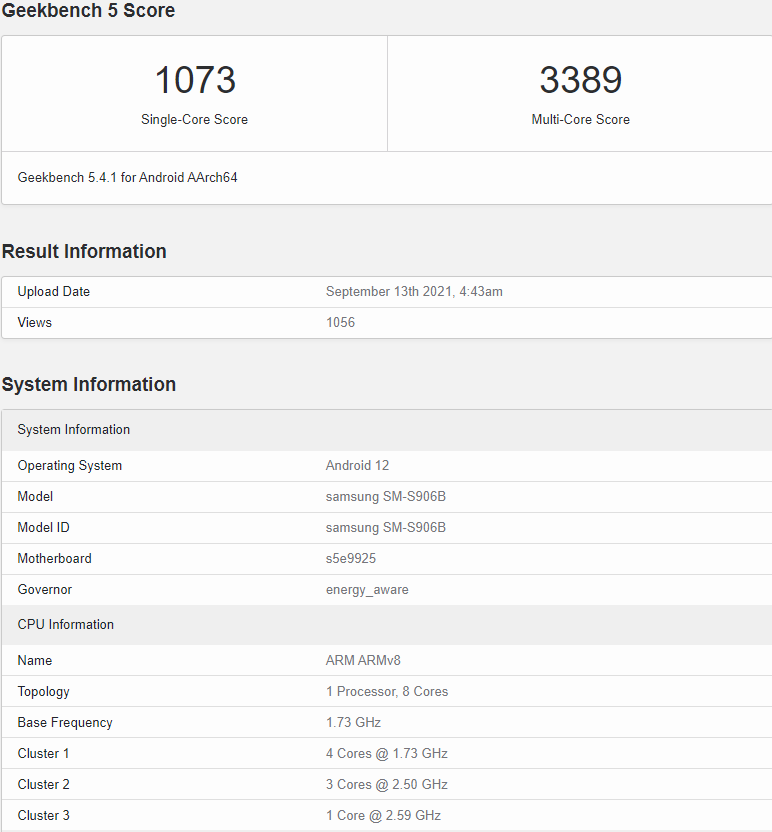Samsung Exynos 2200 With AMD RDNA 2 GPU Benchmarked
Fast, but will it be fast enough?
Samsung and AMD have signed a partnership agreement where Samsung will implement AMD's Radeon RDNA 2 GPU IP inside the company's Exynos SoCs, which are scheduled to appear sometime next year. Now a new Geekbench v5 submission gives us a taste of performance with the Exynos 2200.
The CPU cores are based on Arm's v8 architecture, with eight of them configured for big.LITTLE operation. Four little cores run at 1.73 GHz, while the remaining are divided into two groups. Three cores run at 2.50 GHz, and one core runs at 2.59 GHz. The latter is assumingly the most performant core in the entire SoC, judging from previous mobile Arm-based SoCs we've seen.

The Geekbench submission doesn't reveal much about GPU performance. Still, rumors suggest that the SoC uses six RDNA 2 Compute Units, resulting in 384 stream processors, which should be a big performance boost for the mobile segment.
As far as SoC performance is concerned, the CPU side of things doesn't look very good. The Exynos 2200 SoC scored 1073 points in the single-core benchmark and 3389 points in the multi-core benchmarks. If we compare that to Apple's current offering, the A14 Bionic chip, which scores 1596 points in a single-core scenario and 3944 points in multi-core loads, the Exynos chip still lags, especially in single-threaded workloads. Naturally, the Exynos test results may be impacted by an early version of the silicon or other conditions that often occur with unreleased chips, like unoptimized benchmarks/software.
When it arrives next year, the Exynos 2200 SoC is expected to make a debut with the next generation of Samsung's Galaxy phones. However, the main competitor, Apple, is preparing to update its iPhone lineup with an even more powerful A15 Bionic chip, leaving us to wonder if the Exynos chip will be competitive at launch. Either way, we hope to see better performance results once the SoC arrives and the software becomes more optimized, so take these benchmarks with a grain of salt.
Get Tom's Hardware's best news and in-depth reviews, straight to your inbox.